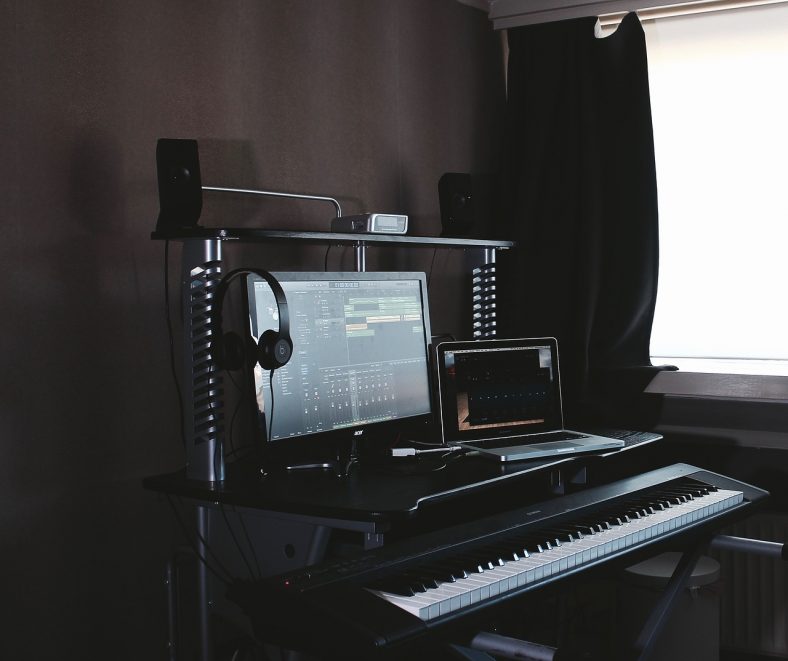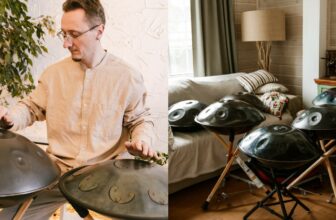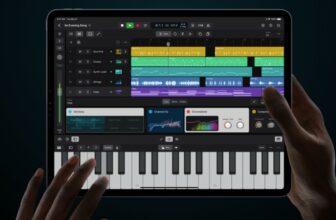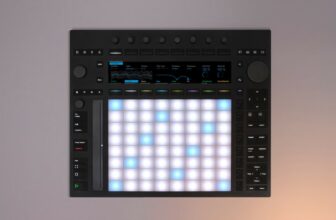Mac vs Windows For Music Production (For Studio and Live)

Mac offers better out-of-the-box software and hardware audio optimizations for music production in comparison to Windows computers, but generally at a much higher cost. Windows computers can be very capable for music production as long as you choose the right hardware and change settings on your machine to optimize audio.
The main reason that Mac offers great reliability is that they have tight control of their hardware and software. If you choose your Windows machine carefully from great brands then these can be as reliable as Mac machines, even for live use. For Windows Machines, business laptops from brands like Lenovo or Dell are very reliable options.
Windows can be a little bit riskier for live music performance if you’re not that technical (i.e. if don’t choose the right laptop or don’t optimize it properly).
Buying a computer for music production is an investment that requires careful deliberations of pros and cons.
Deadmau5 has an interesting take on this, where he prefers a Windows PC for his studio as can basically build a beast of a machine to his liking, but for live he uses a Macbook Pro (simply because they are reliable and he’ll be able to pick up consistent replacements on the road if things go wrong).
While many music producers, film editors, and graphic designers use Apple products because they are designed specifically for creatives, Macbooks are expensive, and getting one with upgraded storage and RAM is often unaffordable.
On the other hand, Windows machines are known for their flexibility in terms of build and customization, but do they support your favorite DAW? Are they reliable machines?
Let us break down the hardware and the software of both Mac and Windows machines so it helps you with which one you want to invest in.
Contents
Key Differences Between Windows and Mac for Music Production
- Like all other Apple products, Macbooks are universally expensive. A basic Macbook Air model with 256GB SSD storage and 8GB RAM costs around $999, without tax. But the problem with getting one of these is that there simply isn’t storage space. Another problem is that there aren’t enough ports in these models. You will need to buy additional components just to be able to plug in your devices including all your external hard disk drives.
- Although expensive, Macbooks are optimized for audio. You will not have to spend time setting up your machine to work seamlessly with whatever DAW you work on, your computer will be intuitive enough to do it for you.
- When it comes to a Mac, the hardware is controlled and there is consistency across all models. On the other hand, you need to do your research before you spend money on a Windows machine. While some brands such as Dell and Lenovo are known for their sturdy laptops, many brands in the same price point may not be as reliable.
- One of the biggest advantages that Windows has over Mac is the ease with which you can upgrade the former. Whether boosting your RAM or installing an SSD to increase memory and performance. The hardware components of Windows machines are relatively affordable and you can upgrade one thing at a time. This takes the pressure of spending a huge amount in one go. You can invest in your computer comfortably. E.g. Many business Windows laptops have easy access to RAM and Hard-drive ports that you can easily expand (though they require a bit of unscrewing).
- If you are currently a student or a teacher, Apple offers an attractive education discount for not just hardware but for their software as well. While Microsoft too offers student pricing on their PCs and laptops, those machines aren’t exactly popular among musicians and music producers.
DAW Support
Most major DAWs such as Ableton Live, Cubase, ProTools, Reaper, Bitwig Studio, and Nuendo are compatible with both Mac and Windows machines. Although FL Studio was once only compatible with Windows machines, they have since released updates that makes the software compatible with both machines.
On the other hand, Logic Pro and Garageband was MacOs software and can only be accessed using Apple machines.
So Mac wins the round when it comes to DAW support but chances are you are probably familiar with a cross-compatible DAW already and the availability of Logic Pro is not that important for you!
Plugin Support
Plugins generally depend on the DAW you use and not the build or type of computer. They are thus accessible by both Windows and Mac users.
If you download AU plugins, this means that it is compatible with macOS whereas VST plugins are often compatible with both (though they don’t always work with Mac because sometimes plugin makers only offer Windows installers). But if you are looking for good quality, free plugins then Windows has a wider variety to choose from for this reason.
Hardware Support
Most hardware such as MIDI controllers and audio interfaces are compatible with both kinds of computers. While you don’t need to download additional drivers or software to install them on your Mac, Windows machines often need additional drivers to work. For example, Novation products such as the Launchpad and the Launchpad Pro need an additional driver download for Windows.
Although the software is not bulky and works seamlessly, this is an added step that Mac users do not have to experience. When setting up a MIDI or audio interface, you are dependent on a stable internet connection before you can set up your workflow, it is not a plug-and-play situation.
If you already have an audio interface, check if it is compatible with the machine you are planning to buy.
Some of the Focusrite audio interfaces, such as the Scarlet series need an additional driver for Windows machines.
A Mac is more advantageous to have because it supports all commonly used hardware and since they do not require additional drivers, it saves you a bit of time and energy.
Windows or Mac for Studio
PCs can be a great option if you are looking for a powerful machine for your home studio or even a professional recording studio. You can build it up in such a way that it has a massive RAM configuration with ample storage space. Since they are relatively cheaper, this will also give you the option to eventually upgrade your screens, monitors, and interfaces. But get ready to spend some more money on software such as your copy of the OS itself.
On the other hand, if you’re looking for a reliable option with minimal hassle, a Mac laptop is the way to go.
One of the most important things to remember when buying a computer is that your requirements will be very different based on whether you are looking for something to use exclusively for recording purposes or a machine you can use for live performance.
An iMac is expensive but it is a cohesive unit with superior quality graphics and hardware. There are additional details like compatibility with USB-C which make data transfer using Macs a lot more seamless.
No matter which one you choose, Mac or PC, remember to keep factors such as how long it takes to import, render and export…although this seems trivial, little factors such as render time go a long way and can help boost your productivity and workflow. You want a machine with a C.P.U. powerful enough to run your DAW and plugins seamlessly.
Windows or Mac for Live Music
By default, Mac is a more reliable option than Windows for Live Music. However, Windows can be a very capable environment for live music as long as its well optimized and you’re using reliable laptop. When it comes to Windows for live use, things get quite a bit riskier unless you know what you’re doing.
When it comes to live music with electronic gear, you should always have backups in mind. Ideally, you should aim to eventually have 2 laptops for live use – One main one and one backup one.
On top of that, professional musicians will almost always tell you that the computer that you use live should be different from the one you use for recording purposes. This way you can only have your live essentials on your machine and take the load off of your C.P.U.
If you are investing in only one machine, then make sure it has the capacity to run your DAW and plugins without freezing or shutting down.
Summary
Buying a new computer is very similar to buying a new instrument, like a guitar. You need to carefully plan your budget and look for the best deal possible. If you are looking for a computer exclusively for music production and performance, consider getting a Mac.
However, if you want to do several things on your computer and are not looking for a dedicated music production machine, then definitely go the Windows path!





